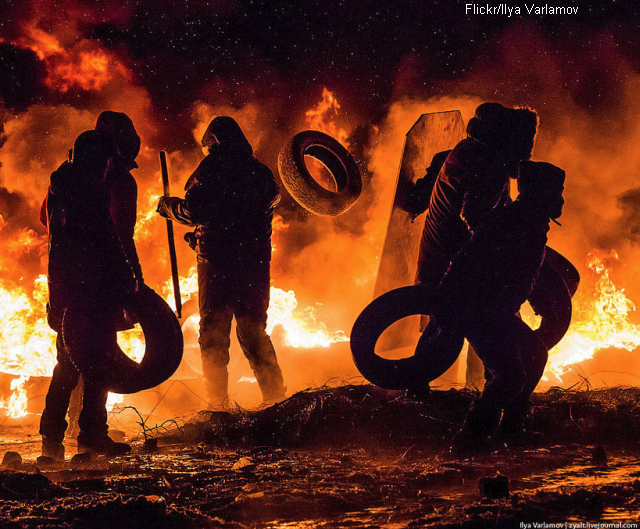Ukraine peace deal signed
After days of violent clashes in central Kiev, the power and the opposition in Ukraine now seem to see reason. Controversial Ukrainian president Viktor Yanokovych and pro-Western opposition representatives have signed, in the presence of EU mediators, an agreement aimed at putting an end to the political crisis and street protests in this country, at least for the time being. With this move, president Yanukovych seems to have chosen compromise, a scenario that seemed highly unlikely earlier this week.

Roxana Vasile, 21.02.2014, 19:09
After days of violent clashes in central Kiev, the power and the opposition in Ukraine now seem to see reason. Controversial Ukrainian president Viktor Yanokovych and pro-Western opposition representatives have signed, in the presence of EU mediators, an agreement aimed at putting an end to the political crisis and street protests in this country, at least for the time being. With this move, president Yanukovych seems to have chosen compromise, a scenario that seemed highly unlikely earlier this week.
The most important point in the agreement will see Ukraine revert to the 2004 Constitution, whereby the president’s prerogatives are limited. The decision will restore balance in the decision-making process and expand the remit of Parliament, which over the past few years had been put into the backseat of Ukrainian lawmaking, with the President calling the shots. Moreover, the terms of the agreement provide for the setup of a national coalition Government, whose main task is the organization of presidential snap elections.
Moreover, opposition representatives have called for all high-ranking officials involved in the violent repression of protesters to be ousted from state office. Romanian authorities were quick to respond. The Romanian Foreign Ministry has hailed the signing of the agreement and gave assurances that as an EU Member State, Romania would continue to take an active role in the process of solving the political crisis.
At the same time, the Ministry is confident that the long-lasting and thorough implementation of the agreement will ensure stability in the country. In light of the tragic events over the last few days, all parties involved in the current crisis should make efforts to prevent such unwarranted violence from escalating in the future, which deeply troubles the Ukrainian people, the Romanian Foreign Ministry also writes. President Viktor Yanukovych’s refusal to sign the Association and Free Trade Agreement with the EU last November has sparked violent protests in Western Ukraine, a region which is predominantly Ukrainian-speaking and pro-European.






























